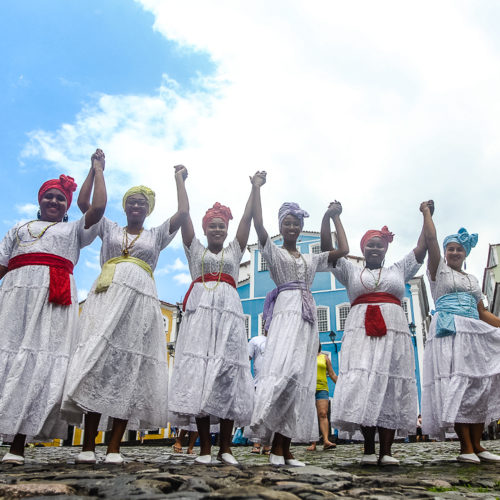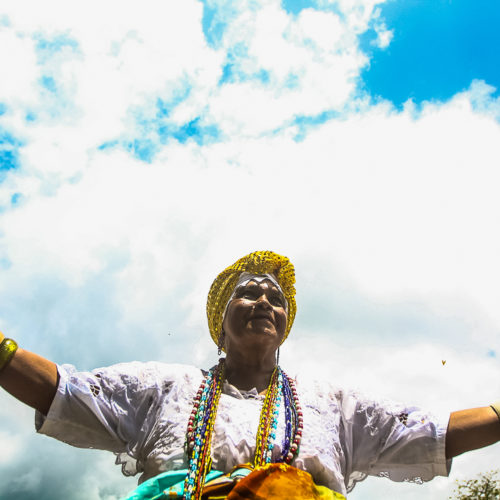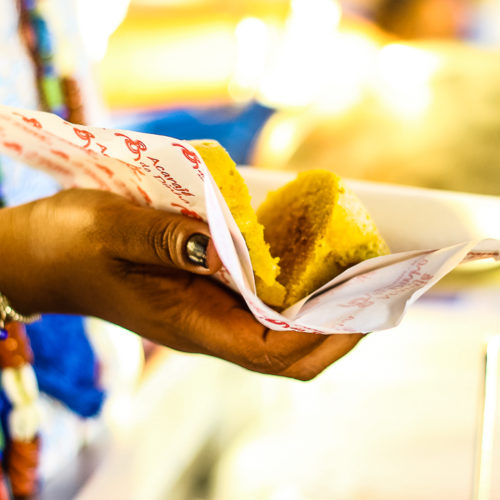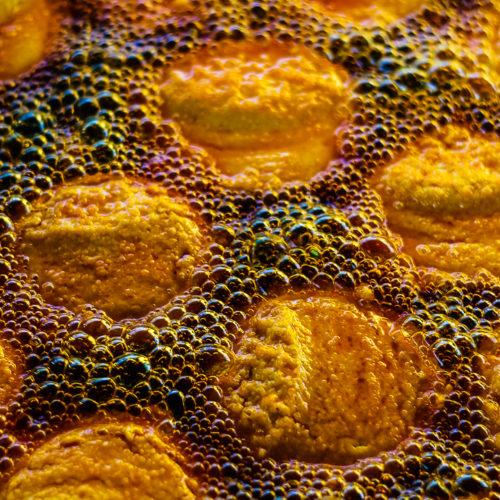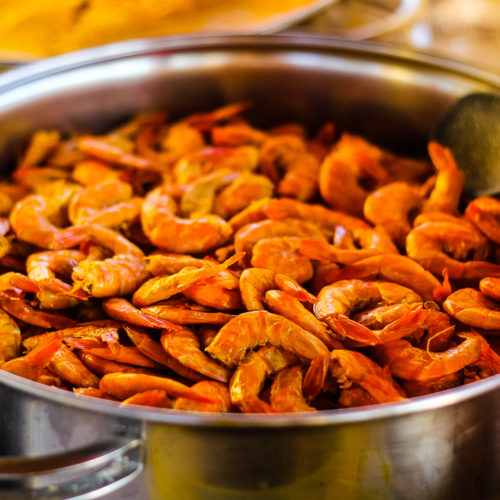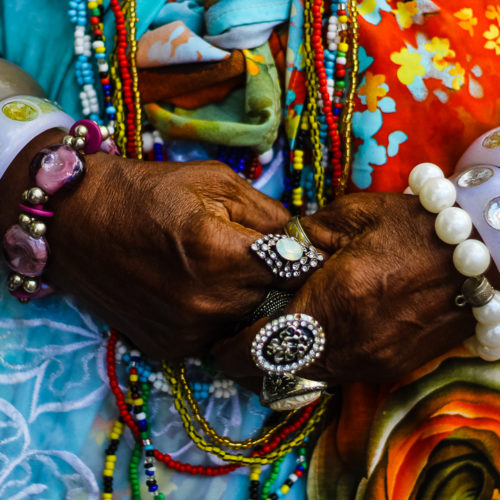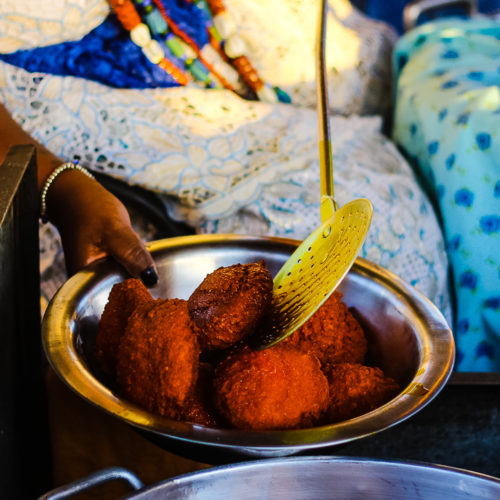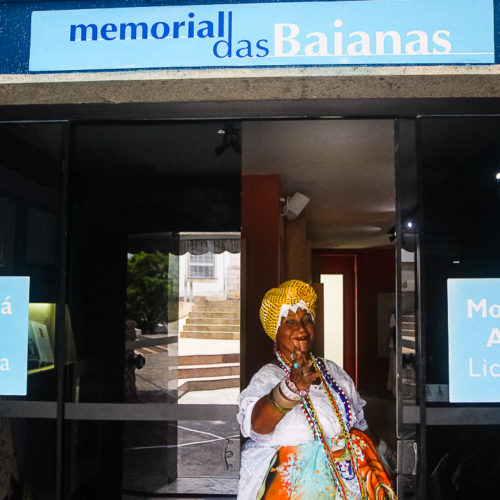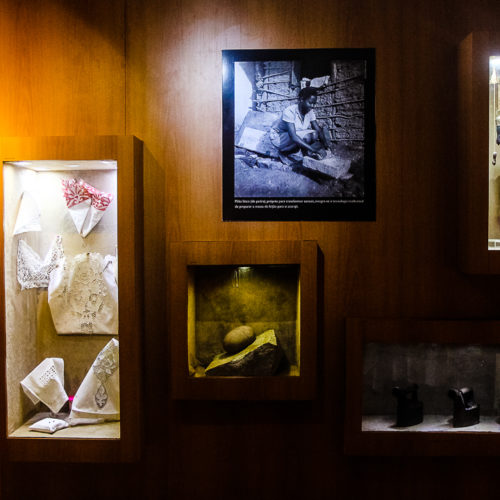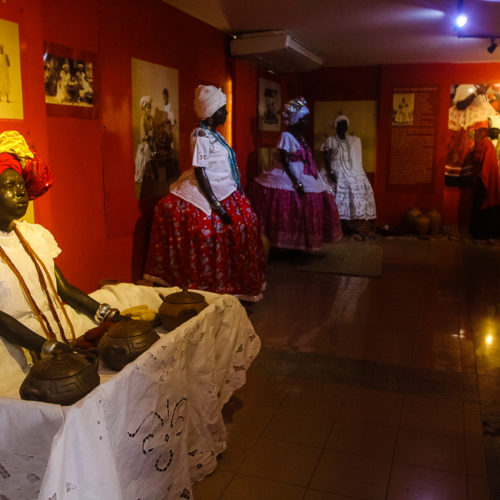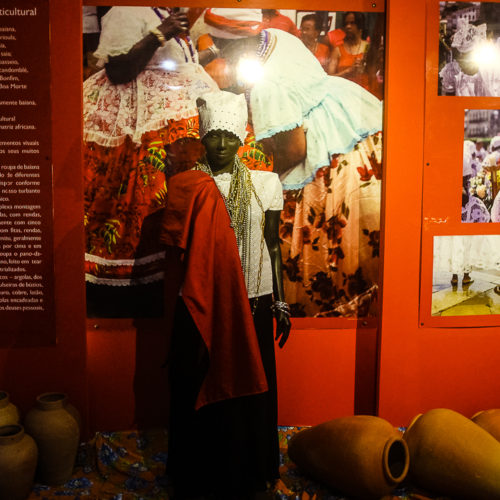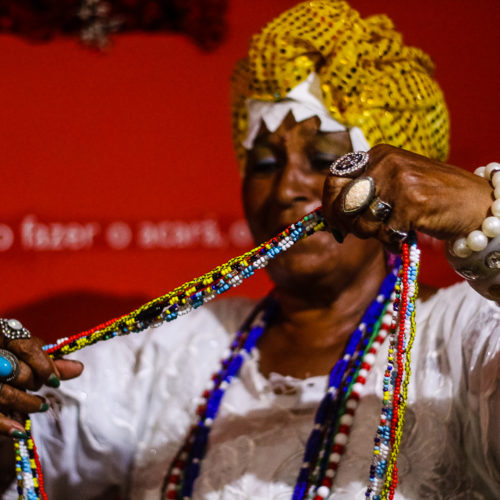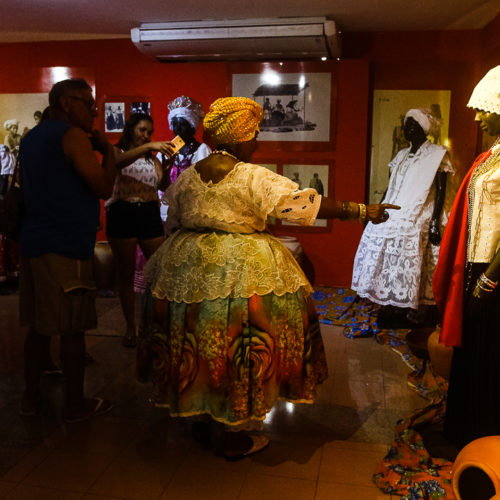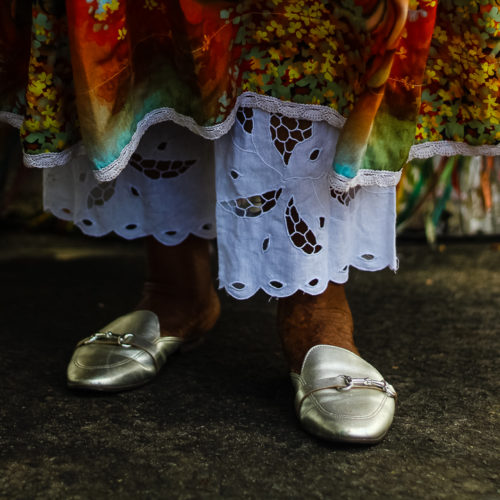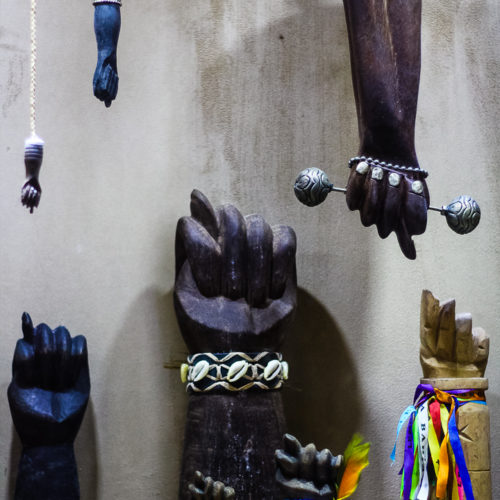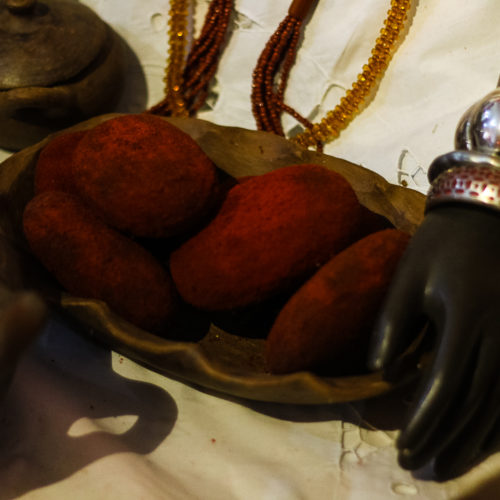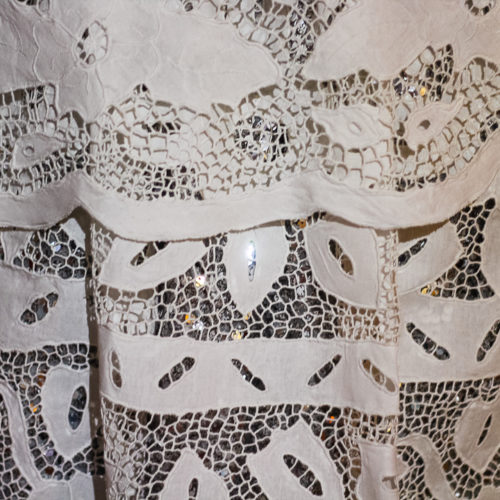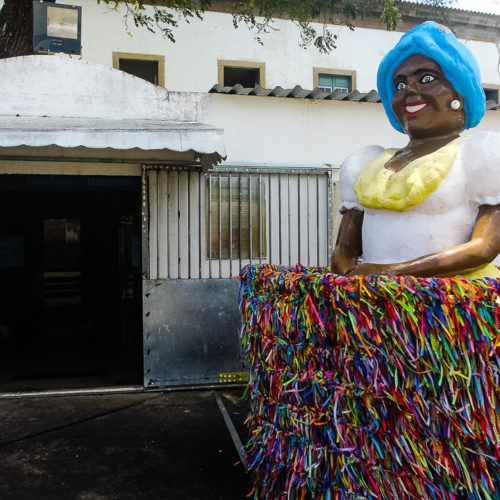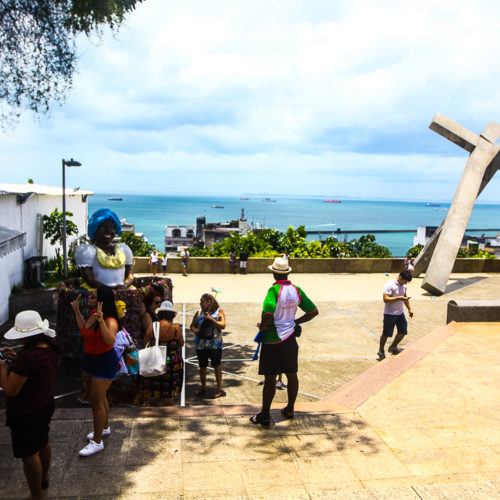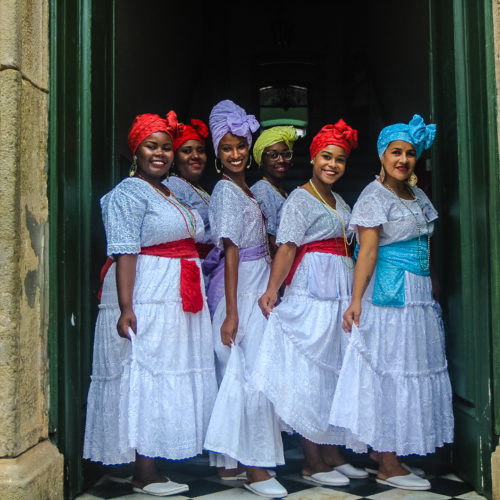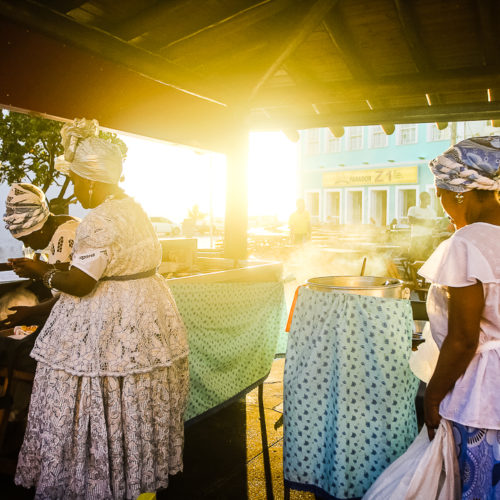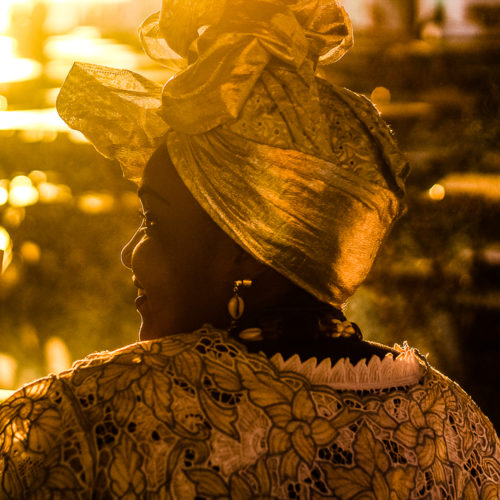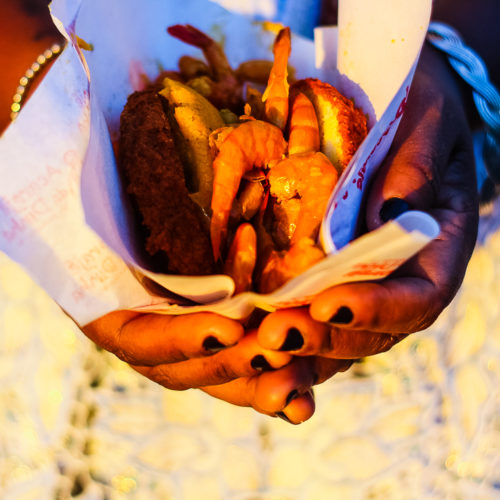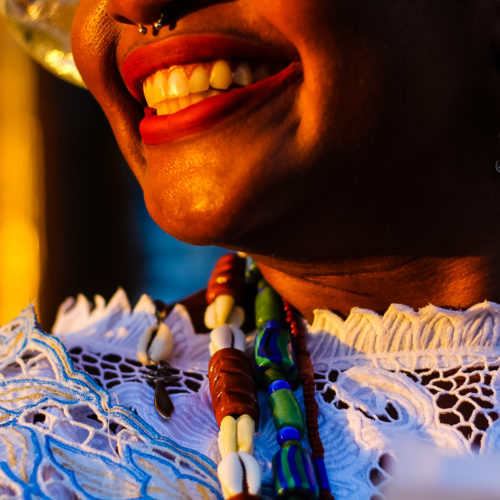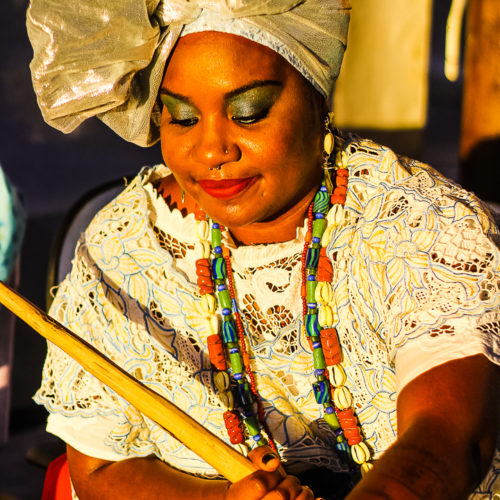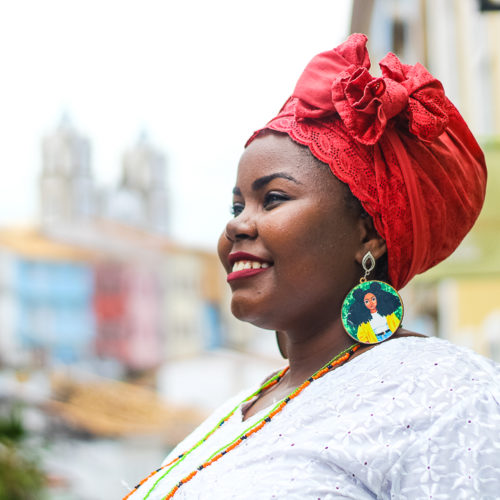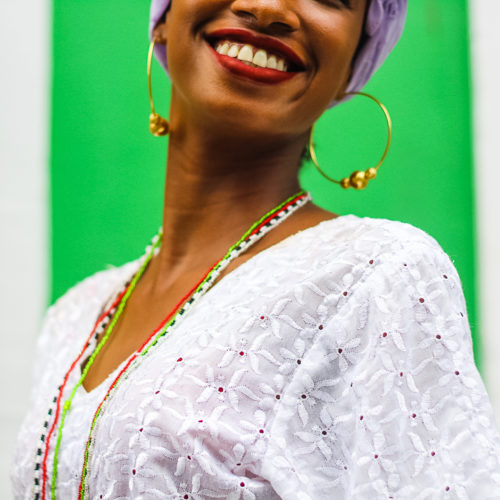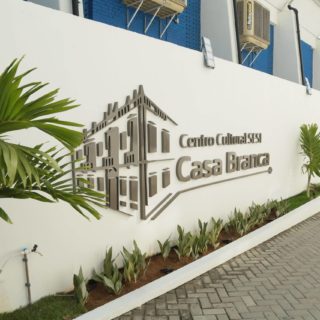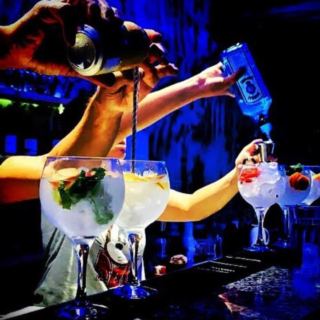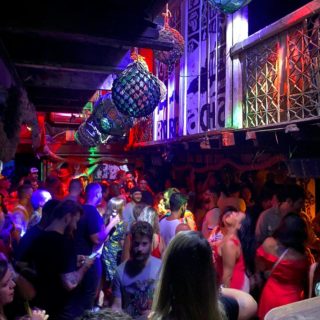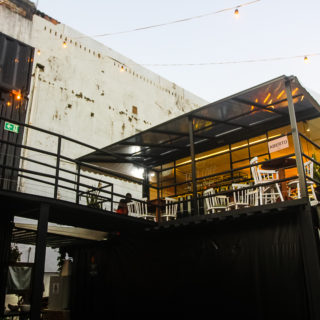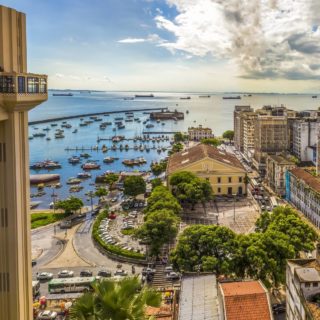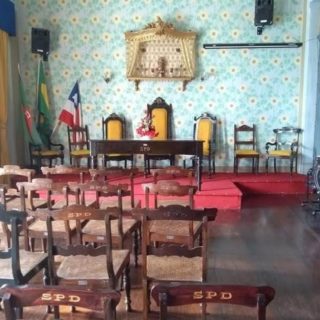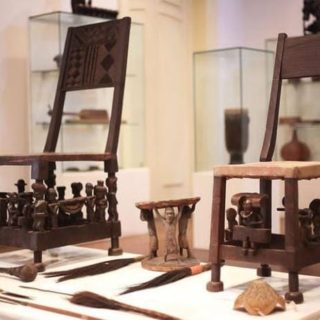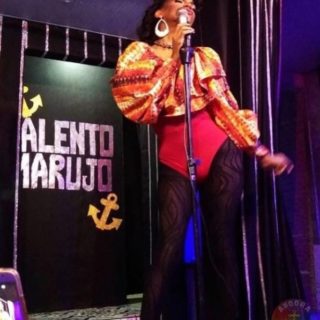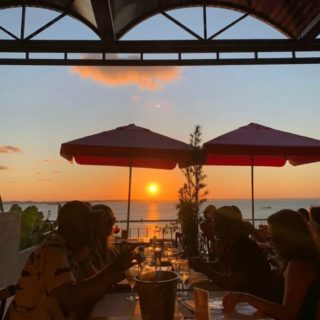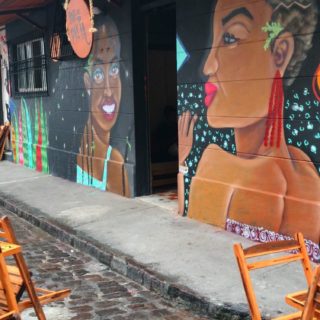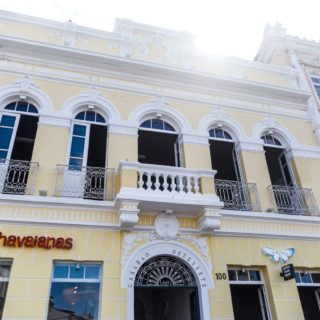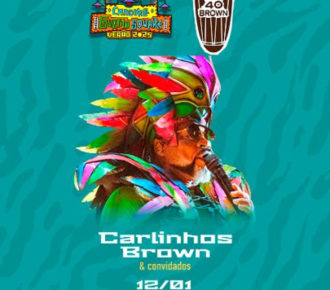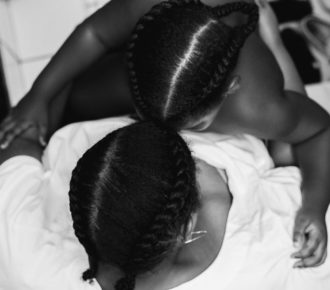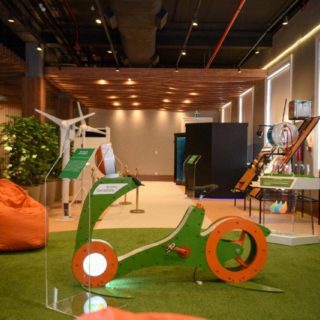
Baianas de Acarajé (Bahian ladies who sell acarajés)
Wherever you go, there they are. It is normal that a Baiana de Acarajé is the first person a visitor has contact with when arriving in Salvador. They are the ones that present the city, the customs and the flavors of Salvador. Baianas de Acarajé are Bahia’s historical and affective memory. The activity of production and commerce of the delicacy is predominantly feminine, and is found in the public spaces, mainly squares, streets, city fairs and seafront, as well as in street parties and other celebrations that mark the city culture. The Bahiana’s dress, characteristic of candomblé rites, is also a strong element in this trade’s identification. It is composed of turbans, cloths and beads that symbolize the Baiana’s religious initiation.
On August 4, 2000, the Profession of Baianas de Acarajé registration was instituted as Cultural Heritage of Brazil, in the Book of Knowledge. It was a public act of recognition of the African ancestors legacy importance in the historical process of our society formation and the patrimonial value of universal cultural complex. This is also expressed through the knowledge of those who keep this occupation alive. The record always has as reference the historical continuity of the cultural asset and its relevance to the memory, identity and formation of Brazilian society.
The Baiana de Acarajé National Day is celebrated annually on November 25. The date honors the historical and cultural importance of the Baiana de acarajé, a name given to women who dedicate themselves to the production and sale of this typical Bahia delicacy. Rita Santos, one of the 12 national coordinators of the Baianas de Acarajé Association, in charge of the Baianas de Acarajé Memorial, explains:
“It all started in the symbolic. The enslaved women sold acarajé to buy their freedom. In the second stage, the Baianas went to the streets to sell acarajé to do their obligations at the terreiros (Candomblé Houses), usually the Oiá daughters (it couldn’t be any person). Over time, the Baiana realized that, by selling acarajés, she could support the family, it was when the acarajé went to the street and became commercial. It is commercial, but in my head it is still symbolic because it still belongs to the terreiro, it remains sacred. The acarajé is an offering to Iansã and the abará is an offering to Xango”.
Local and national society attributes a set of meanings to this symbolic element that constitutes Bahian identity. The Bahian food preparing is a cultural practice of the long historical continuity, reaffirmed in the daily candomblé rituals and part of a strong identity factor in Salvador city. All this makes the Baiana de Acarajé a cultural asset.
The Baianas de Acarajé Memorial
The Baianas de Acarajé Memorial is a space dedicated to the history and tradition of the baianas de acarajé job. However, this memorial understanding is also beyond these walls. It is in the streets and squares, in the popular festivals, it is in the very experience of eating an acarajé, of sitting next to the baiana, of recognizing the smell of the palm oil from the other corner. The Memorial was inaugurated in Salvador historic center in June 2009. As the name suggests, the space is dedicated to the tradition and history of the women who commercialize this Bahia’s typical food, made with beans, which carries pepper, dried shrimp, vatapá, caruru and salad.
The place, registered by the National Institute of Artistic and Historical Heritage from the Ministry of Culture (Iphan / MinC) as Cultural Heritage of Brazil, has exhibition and documentation spaces. The visitor can see, for example, props, handicrafts and some gastronomic instruments used by them, a way of preserving the trade, with the idea of showing to the population and the visitors how it is, how it started and how far the Baiana de Acarajé profession is going, with photos, objects, clothing and two videos.
Service
The Baianas de Acarajé Memorial
Address: Cruz Caída, Praça da Sé – Pelourinho, Salvador – BA, 40301-155
Opening hours: from Monday to Saturday, from 10am to 4pm.
Phone: (71) 3322-9674

